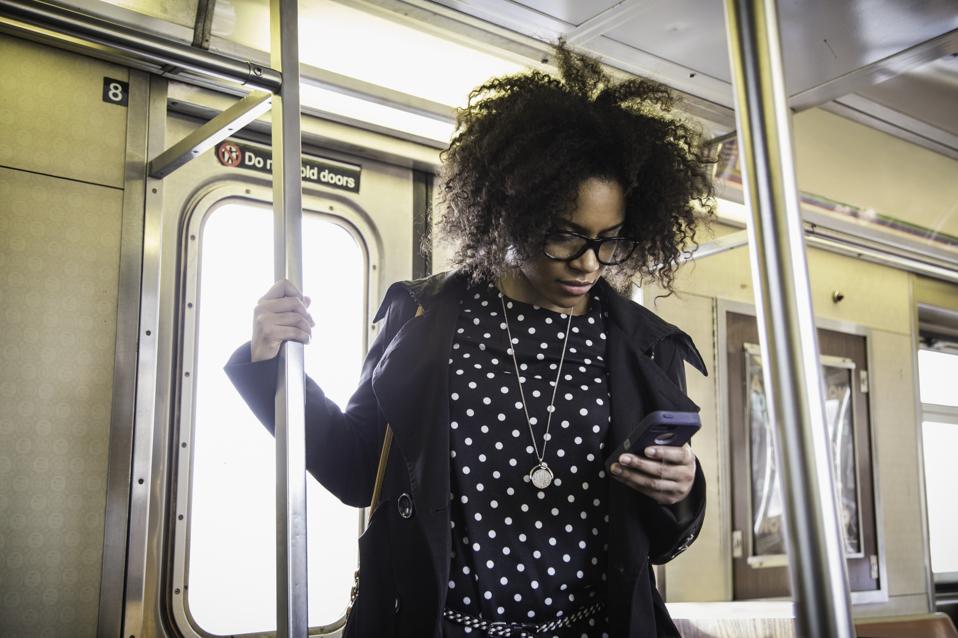With more than 300,000 Black women pushed out of the U.S. workforce in the last several months, there has been continued conversation about what this mass exodus means for the U.S. workforce. The results of a recent survey posted to LinkedIn provides a detailed snapshot of Black women’s layoff experiences. The survey, which garnered 243 responses, revealed that most Black women impacted by layoffs were those in their prime earning years between the ages of 35 and 54. A smaller number of respondents were early career (age 18-24) and late career (age 55 and older). Though the survey was seeking responses from U.S.-based Black women, similar experiences were reported from respondents outside the U.S., who emphasized experiences with bias and systemic inequities.
The survey also revealed that many Black women impacted by layoffs reside in major metropolitan areas like Atlanta, Baltimore, Washington D.C., Houston, Dallas, Chicago, and New York. According to the survey, the industry where Black women were most impacted by layoffs was the tech industry as well as healthcare, education, government and non-profit, respectively. When asked about what actions they were engaged in post-layoff, 85% of those surveyed indicated they were searching for a new job in the same field, 59% of respondents said they were starting a business or doing freelance work post-layoff, 52% of respondents said they were switching industries, 30% revealed they were retraining or returning to school and 30% of respondents indicated that they were taking a break from the workforce.
“The job search has been discouraging and a bit demoralizing, since I sorta feel AI is filtering [and] screening resumes,” shared school library director, education consultant and CEO of Awaken Libraries Jean Darnell. “That being said, I have a background in generative AI, a master’s in information science and spend my time reconfiguring my resume to see if I can crack the algorithm to make my resume stronger and at the top of candidacy selection.” Despite the adversities Darnell has encountered, she is not defeated and has utilized this time to lean on her network and sharpen her skills. “I volunteer with job-affiliated organizations that have Black subcommittees or caucuses and attend conferences that serve as professional development, so that my skills are sharp whenever employment comes a-knocking.”
Ty-Eshia Johnson was a revenue cycle specialist in healthcare when she was pushed out of her job and remained unemployed for five months before accepting a new position. When reflecting on her journey, Johnson encouraged Black women who have been pushed out of the workforce to use the newfound time to reconnect with themselves. “What do [Black women] love to do outside of making money? Are there unfinished personal projects? What are [Black women’s] natural born gifts and talents? Of course, look for a job and revise the resume,” she said. “I advise [Black women] to speak on what they came through. We matter and we’re making a difference. Let’s not take baggage from the old places into the new spaces.”
Since early 2025, there have been mass government layoffs that have disproportionately impacted Black employees, who make up 18% of the federal workforce. Jeanette D. Dingle was among this population, working as a senior technical project manager contracted at the National Institutes of Health (NIH) and the National Institute of Allergy and Infectious Diseases (NIAID) before her role became one of the 83,000 federal jobs that were reportedly cut since January. “Since being laid off from the federal government in May,” Dingle shared, “my job search has been difficult and often disheartening.” Despite the mounting challenges she has faced on the job market, she has leaned on her faith during this time. “This journey has deepened my relationship with God. In moments of stress and depression, my faith has been my anchor and the only thing that truly carries me through. I’ve learned that while I cannot control the timing of opportunities, I can control my resilience and my perspective.”
The mass exodus of Black women in the U.S. labor force didn’t happen in a vacuum. Although it may seem like we have reached a precipice, several incidents that occurred on the public stage over the past few years should have served as an early warning sign: The resignation of Harvard’s first Black president Dr. Claudine Gay, the tumultuous U.S. Senate confirmation hearings of the first Black woman Supreme Court justice Ketanji Brown Jackson, and the misogynoir that former Vice President Kamala Harris experienced on the presidential campaign trail. “While I haven’t been laid off from a W-2 position, as a consultant in the inclusion field, I’ve experienced a parallel devastation. Within weeks of the 2024 election results, clients began freezing contracts, citing ‘wait and see’ approaches. From inauguration day to February 14th, 2025, I lost $130,000 in contracted work due to cancellations and indefinite postponements,” shared organizational culture consultant Abi Adamson.
Despite what may feel like decimation that Adamson and other Black women in DEI and adjacent industries have experienced, Adamson remains optimistic about the future. “Remember that the pendulum always swings back,” she said. “While the current climate feels devastating, there are countless people and organizations actively pushing against this deliberate exclusion. Lean on your allies without shame; you’ve more than earned their support through years of being the backbone of every workplace you’ve touched. Also, document everything. Your expertise doesn’t diminish because the market has temporarily lost its marbles.”

